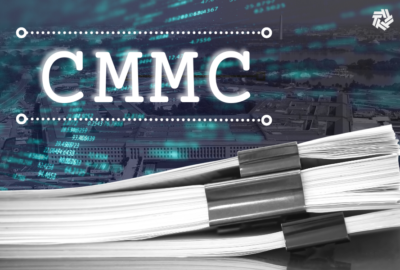The government’s mixed messages on global supply chains, continued
This blog continues to explore the mixed supply chain messages the federal government is communicating to the industrial base.
Two weeks ago, FAR & Beyond focused on the “Competing Global Supply Chain Approaches” governing federal acquisition. The blog outlined the significant differences between the Buy American Act (BAA) and the Trade Agreements Act (TAA). This blog continues to explore the mixed supply chain messages the federal government is communicating to the industrial base. These differences are highlighted by the differing treatment of Chinese products and whether they are eligible for purchase in response to a government requirement.
The BAA provides a price evaluation preference, favoring domestic producers over foreign offers in a covered procurement. As such, if the price of an offered Chinese product is low enough, the federal government will buy that product. For large business offerors the price preference added to non-domestic offers is 20%, and for small business offerors it is 30%. For Department of Defense acquisitions, the preference is 50% for all domestic offerors, regardless of size.
In contrast, under a procurement covered by the TAA, an offeror must supply products made or “substantially transformed” domestically or made or “substantially transformed” in allied countries with which the United States has a trade agreement. China is not one of those countries. Accordingly, Chinese products are ineligible for award under TAA covered procurements. The TAA applies to most commercial procurements, as it applies generally to procurements exceeding $174K. Part 25 of the Federal Acquisition Regulation (FAR) lays out the rules for the BAA and TAA. Significantly, the TAA also provides that the President (through the US Trade Representative) cannot waive small business preferences. As a result, FAR Part 25 provides that the TAA does not apply to small business set-asides for supplies, regardless of the value of the procurement. Under small business set-asides eligible products are limited to those made by domestic small businesses. There is one exception to the set-aside requirement to supply a product made by a domestic small business. The exception is triggered by a waiver of the Non-Manufacturer Rule (NMR).
The Small Business Rules: Is the Price Right for Products Made in China?
Generally, on a small business set-aside for supplies above the simplified acquisition threshold, the offeror must provide the product of a small business, made in the United States. Foreign products, whether from China or from allies, may not be supplied. Thus, the BAA and TAA are irrelevant for purposes of a standard small business set-aside for supplies. But if no small business manufacturers exist, the procuring agency has a choice: it can acquire the goods on a full and open basis or it can request a waiver of the NMR from the Small Business Administration (SBA). If SBA confirms no small business manufacturers exists and issues the waiver of the NMR, the procuring agency can set the solicitation aside for small business. Because of the FAR provision discussed above, the BAA applies to all small business set-asides for supplies regardless of value. Consequently, small business offerors can supply the products of large and/or foreign manufacturers, including Chinese manufacturers.
Different supply chain rules apply depending on how the contracting officer chooses to proceed with the acquisition. If the procuring agency proceeds on a full and open basis, the procuring agency will acquire supplies made domestically or in allied countries. If the contracting officer requests and receives a waiver of the NMR and sets the acquisition aside, the procuring agency may end up buying supplies made in China, perhaps at a lower cost than it would if it had proceeded on a full open basis and the TAA applied. Thus, if no small business manufacturers exist in the United States, the contracting officer clearly has options: buy from domestic or allied sources or purchase supplies from small nonmanufacturers, possibly made in China, at the lowest cost.
No one is questioning the appropriate use of the waiver of the NMR. It is more a question of the unintended consequences in the supply chain. It is appropriate to ask whether the TAA should apply to a small business set-aside with a waiver of the NMR where the value of the acquisition exceeds the TAA threshold. It is also fair to ask how the mixed regulatory message on domestic and foreign sourcing impacts the industrial base.
Copyright © 2025 Federal News Network. All rights reserved. This website is not intended for users located within the European Economic Area.






